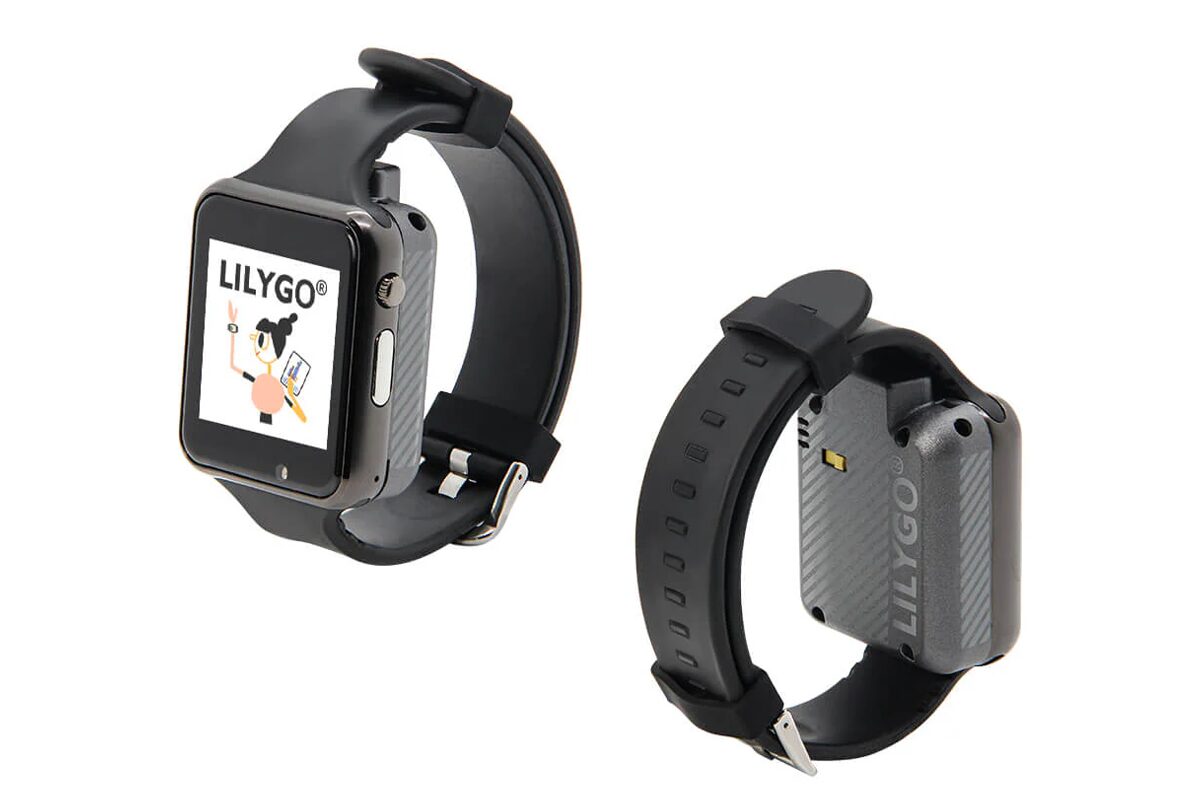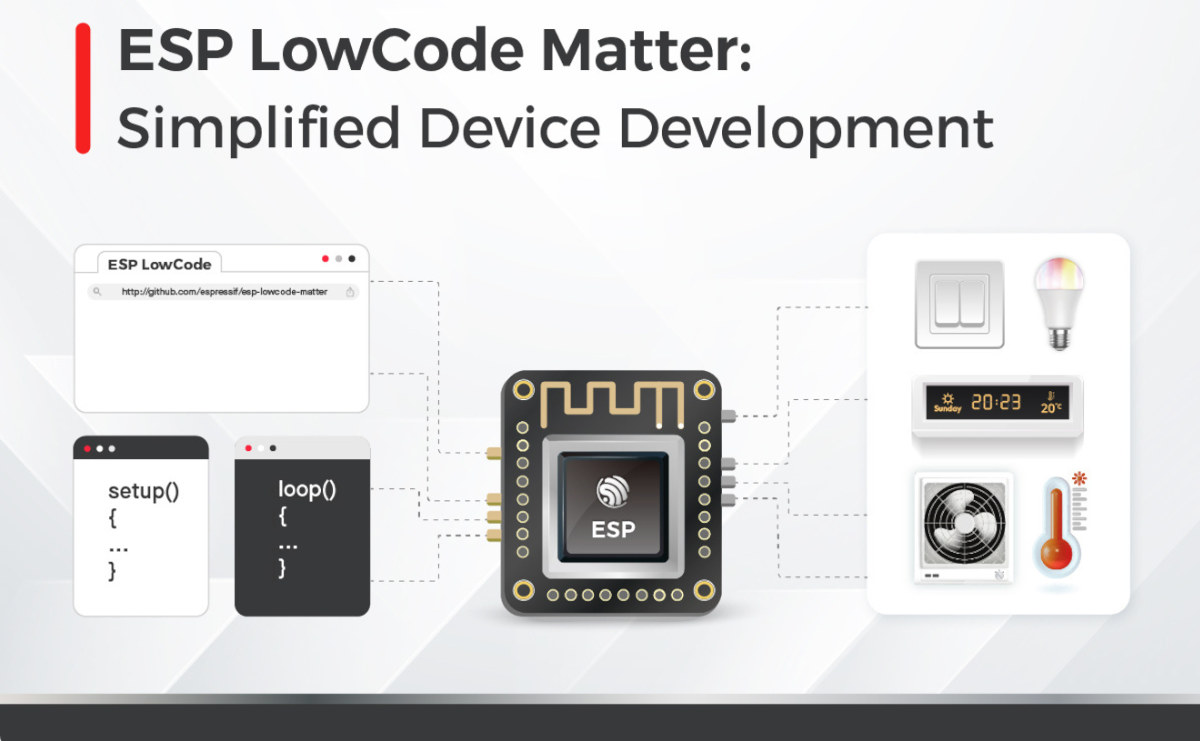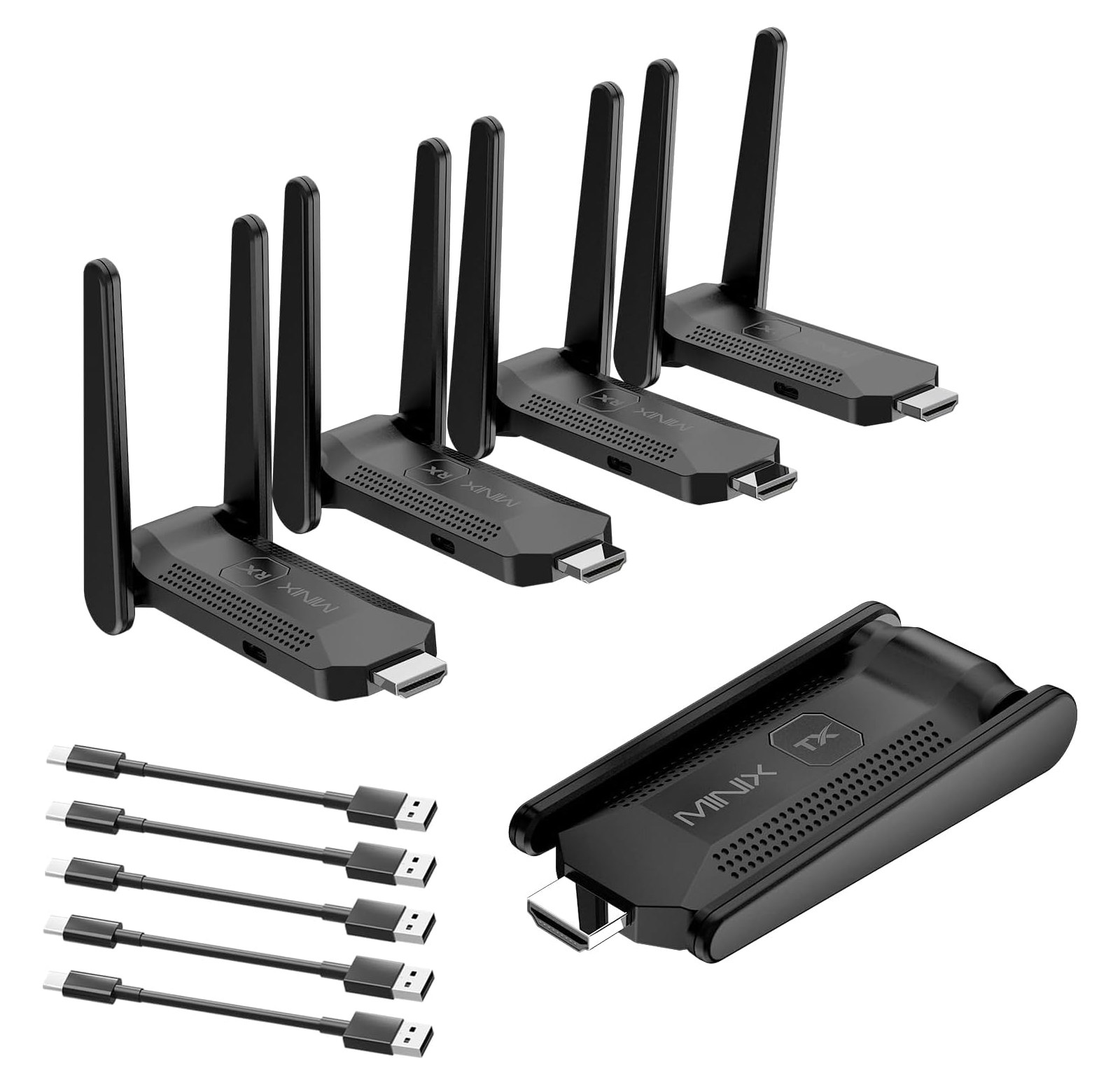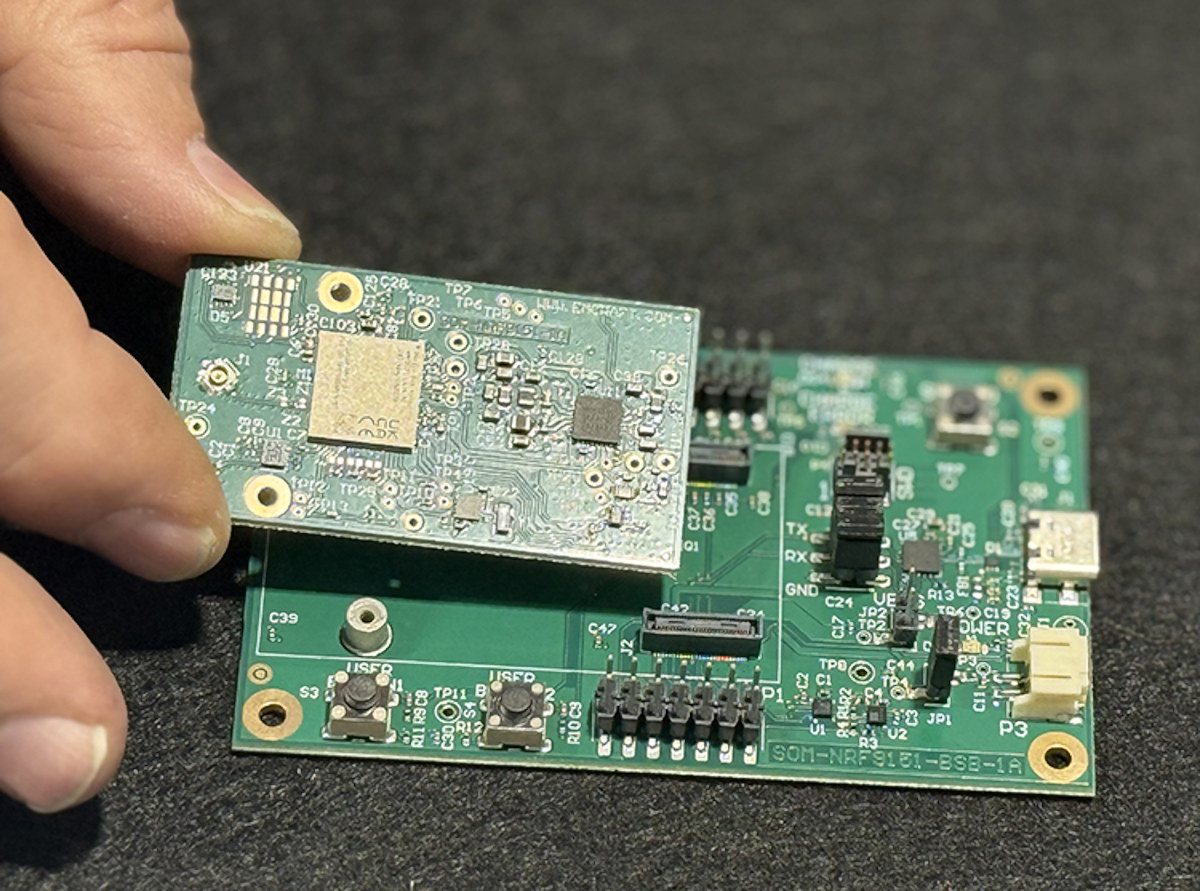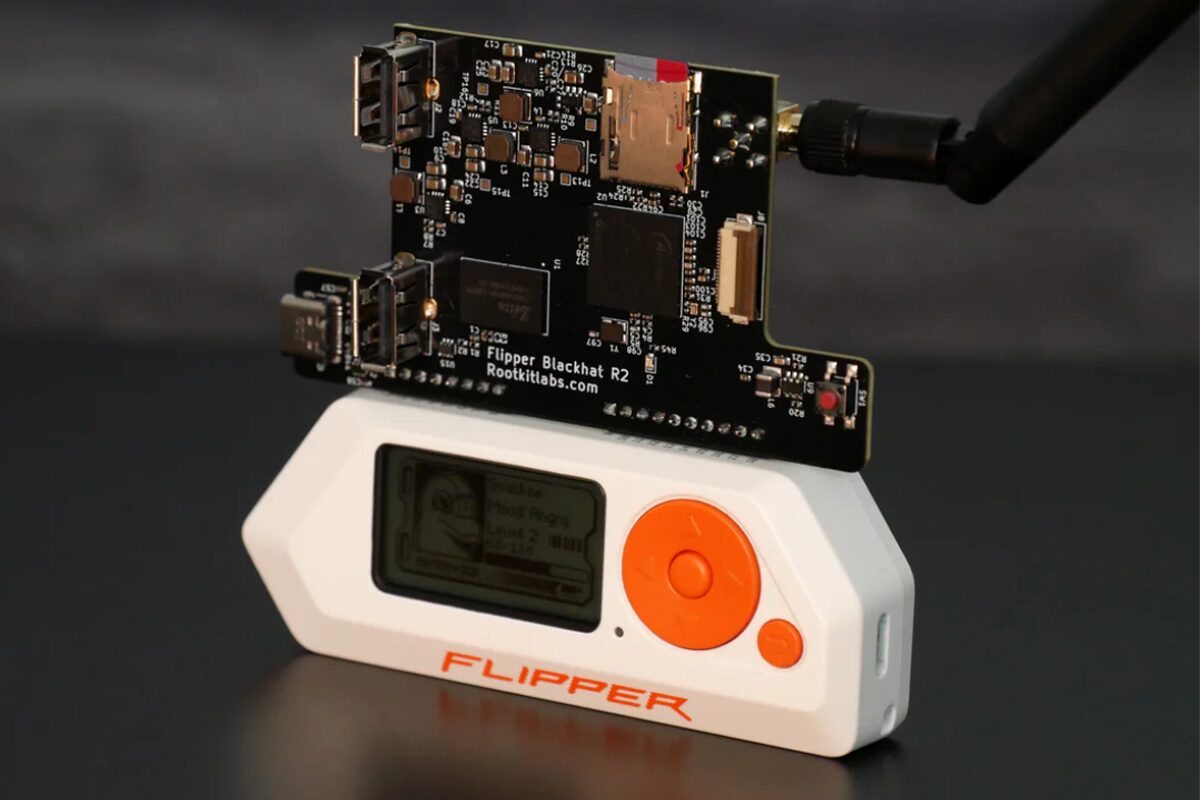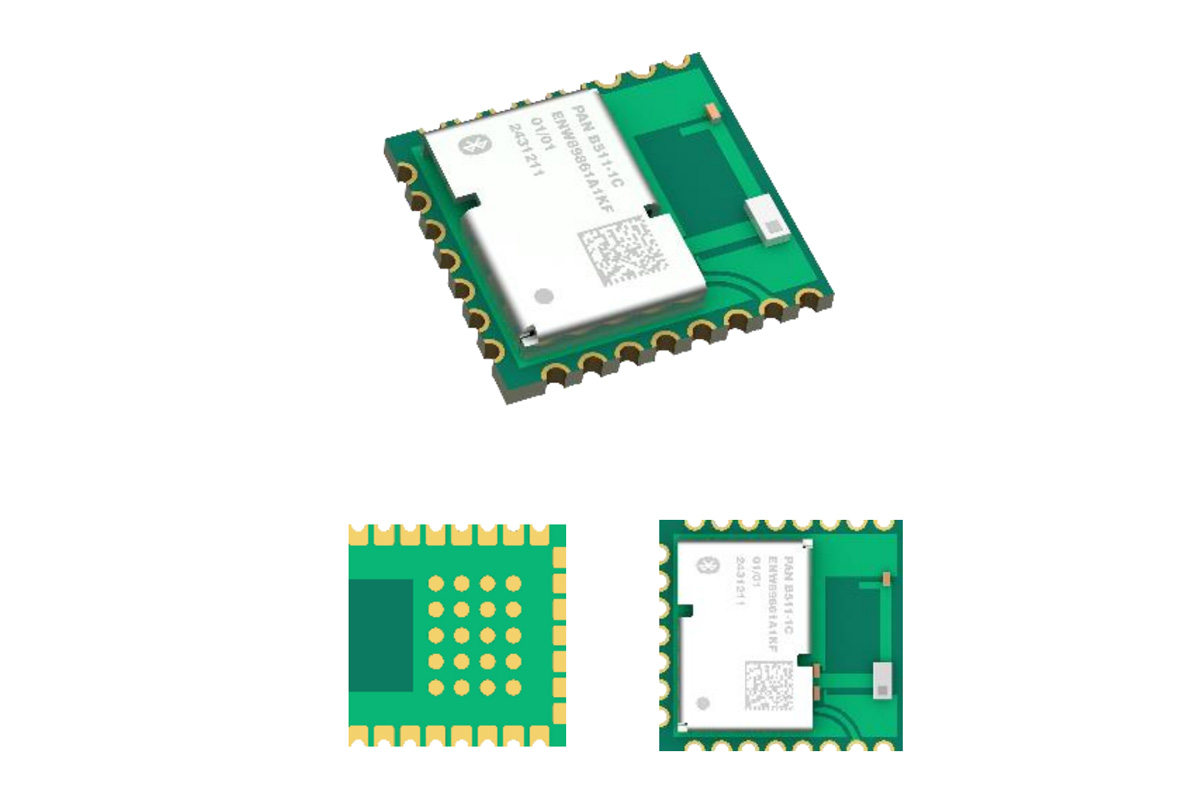There are plenty of small ESP32-C3 IoT boards with a USB-C connector on the market, and while they all look very similar, antenna designs differ, and less thought-out ones may severely impact the WiFi and Bluetooth range. Peter Neufeld decided to hack one of those cheap ESP32-C3 boards by adding a custom antenna, and this resulted in the board having more than twice the range and almost three times in some cases. Those tiny boards are cramped, so there’s very little space around the ceramic antenna typically used, leading to poor RF performance. To work around that issue, Peter added a 31mm long antenna made of silver-plated wire, making a loop of about 8mm in diameter outside of the board and soldered on the ceramic antenna’s solder joints, and the rest of the wire (about 15mm) points upwards. As you can see from the photo above, he didn’t remove the […]
LILYGO T-Watch S3 Plus smartwatch gets GPS and 940mAh battery
LILYGO has recently introduced the T-Watch S3 Plus, an ESP32-S3 smartwatch which can be considered an upgrade from the previous generation T-Watch S3, adding a u-blox MIA-M10Q GPS and a larger 940mAh LiPo battery for extended battery life. The T-Watch S3 Plus smartwatch still supports Wi-Fi, Bluetooth LE, and LoRa connectivity, and integrates a 1.54-inch 16-bit full-color TFT LCD display with capacitive touch and a wide-viewing angle. The smartwatch also features an infrared (IR) transmitter that can be used for remote control or proximity detection. T-Watch S3 Plus specifications Wireless MCU – Espressif Systems ESP32-S3 CPU – Dual-Core 32-bit Tensilica LX7 @ up to 240 MHz with vector instructions for AI/ML acceleration Memory – 512KB SRAM, 8MB PSRAM Storage – 16MB flash, 384KB ROM Wireless – Wi-Fi 4 and Bluetooth 5 LE/Mesh Display – 1.54-inch 16-bit full color TFT LCD display with 240×240 resolution, capacitive touch; ST7789V SPI controller Audio – […]
Batteryless 7.5-inch NFC-powered e-paper display V2 gets new NFC chip and “fast flashing method”
Back in 2020, we wrote about Waveshare’s Batteryless NFC e-paper display, which can work without a battery and draws power and data from an NFC-enabled smartphone or the company’s ST25R3911B NFC board. Waveshare has now released a V2 version of this display with a new and improved NFC chip, a “fast flashing method”, and enhanced contrast. The new batteryless, 7.5-inch NFC-powered e-paper display features an 800×480 resolution and updates via an NFC-enabled smartphone or reader. It offers a 170° viewing angle and comes in a durable ABS plastic shell. The ST25R3911B NFC board allows updates via USB, SD card, or serial port, with an optional password lock. However, precise NFC positioning is required for updates. These features make it ideal for shelf labels, equipment tags, and other applications. Waveshare 7.5-inch NFC e-paper display V2 specifications: 7.5-inch e-paper display 800×480 resolution Display color black and white 170° viewing angle Refresh Time […]
ESP LowCode Matter splits system and application firmware for simpler ESP32 device development
Espressif released the ESP ZeroCode web application in the summer of 2023 to create custom Matter-certifiable firmware for ESP32 targets. However, if your application requires some more customization, but you don’t have the budget or need for a software engineering team, the company has now launched ESP LowCode Matter. It retains most of the simplicity of ESP ZeroCode, but also provides the ability to further customize the application without having to use the ESP Matter SDK, which requires more advanced coding skills to build your own firmware. The ESP LowCode Matter divides firmware into two components to simplify the development, maintenance, and certification process: System Firmware – Managed by Espressif, handling the Matter protocol, wireless stacks, OTA updates, and security management. Application Firmware – Developed by device makers, focusing on hardware interfacing, event and state indication, and user interaction. Development is done right in the web browser thanks to VS […]
MINIX B14 1-to-4 wireless HDMI kit supports up to four Full HD displays
We’ve covered various wireless HDMI solutions over the years, such as the Xiaomi Wireless Casting Adapter or ProScreenCast SC02, but I think it’s the first time I’ve come across something like the MINIX B14 1-to-4 wireless HDMI kit with support for up to four Full HD displays. The MINIX B14 comes with a single HDMI Tx dongle and four HDMI Rx dongles to be connected to four monitors or TVs. The solution works over dual-band WiFi and additional HDMI Rx can be added if needed. MINIX B14 specifications: Wireless HDMI – 1x HDMI transmitter and 4x HDMI receivers WiFi – Dual-band (2.4GHz+5GHz) WiFi with up to 50 meters range Resolution – 1080p HD (not frame rate provided) Features Simultaneous connection to multiple devices (1-to-4 Capability) Plug-and-Play operation High-definition video streaming Audio-Video sync Power Supply – 5V/2A via USB-C port Dimensions – 10.6 x 4.4 x 2 cm when the antennas […]
emCraft SOM-NRF9151 – A Nordic Semi nRF9151 System-on-Module with LTE-M, NB-IoT, DECT NR+, and GNSS
Better known for its Linux and uCLinux-powered system-on-modules, emCraft has just launched the SOM-NRF9151 system-on-module powered by a Nordic Semi nRF9151 Arm Cortex-M33 SiP (System-in-Package) with LTE-M, NB-IoT, and DECT NR+ connectivity, and GNSS functionality. The SoM also features a 16MB SPI flash, an nPMIC1300 for power management, a Nano SIM card slot, and a footprint for an eSIM. I/Os and power signals are exposed through two 50-pin board-to-board connectors, and the company provides a starter kit with a baseboard for evaluation. emCraft SOM-NRF9151 specifications: SiP – Nordic Semi nRF9151 CPU – Arm Cortex-M33 @ 64 MHz Memory – 256 KB SRAM Storage – 1 MB flash Wireless – LTE-M, NB-IoT, and DECT NR+ modem with GNSS 700-2200 MHz LTE bands: B1-B5, B8, B12, B13, B17-B20, B25, B26, B28, B65, B66, B85 Power Class 5 20 dBm Power Class 3 23 dBm 1.9GHz NR+ band support Certified for global operation […]
Flipper Blackhat is a Flipper Zero dual-band Wi-Fi card with an Allwinner A33 processor
Developed by Rootkit Labs in Switzerland, the Flipper Blackhat is an open-source Allwinner A33-based Flipper Zero dual-band Wi-Fi card running Linux and designed for penetration testing, cybersecurity research, and wireless network analysis. Built around an Allwinner A33 quad-core 1.5GHz processor, it comes with 1GB RAM, and an onboard 2.4GHz WiFi radio (RTL8723DS), with additional connectivity via two USB-A ports and one USB-C (FTDI-connected). The package also includes a 5GHz USB WiFi dongle (RTL8821CU) and a WiFi antenna for the built-in radio but requires an SD card and Flipper device separately. Flipper Blackhat Specifications: SoC – Allwinner A33 CPU – Quad-core Arm Cortex-A7 processor GPU – Arm Mali-400 MP2 VPU – 1080p60 H.264, VP8, MPEG 1/2/4, JPEG/MJPEG video decoding 1080p60 H.264 video encoding Memory – 1GB RAM Storage – SD Card slot Wireless Connectivity Realtek RTL8723DS 2.4 GHz Wi-Fi Includes Realtek RTL8821CU 5 GHz USB Wi-Fi dongle Supports additional third-party Wi-Fi […]
Panasonic PAN B511-1C Bluetooth 6.0 and 802.15.4 module features castellated holes and LGA footprint
Panasonic industry has recently introduced the PAN B511-1C Bluetooth 6.0 and 802.15.4 module based on the Nordic Semi nRF54L15 SoC and designed for ultra-low-power wireless communication. The compact module integrates a chip antenna, 32MBit flash memory, two Crystals, and the Nordic nRF54L51 which provides a 128 MHz Arm Cortex-M33 microcontroller with Bluetooth 6.0 (LE), Thread, Zigbee, and Matter, along with multiple peripherals such as SPI, UART, I2S, PWM, and ADC. The PAN B511-1C also implements security features to support secure boot, secure firmware updates, cryptographic acceleration, and tamper detection, making it suitable for a range of IoT, industrial automation, smart home, medical (wearables), and battery-powered applications. PAN B511-1C module specification: SoC – Nordic Semiconductor nRF54L15 MCU cores Arm Cortex-M33 with Arm TrustZone @ 128MHz RISC-V coprocessor for software-defined peripheral Memory – 256KB SRAM Storage – 1.5MB non-volatile memory Wireless Bluetooth 6.0 Data rates – 2Mbps, 1Mbps, 500kbps, 125kbps Features AoA / […]



